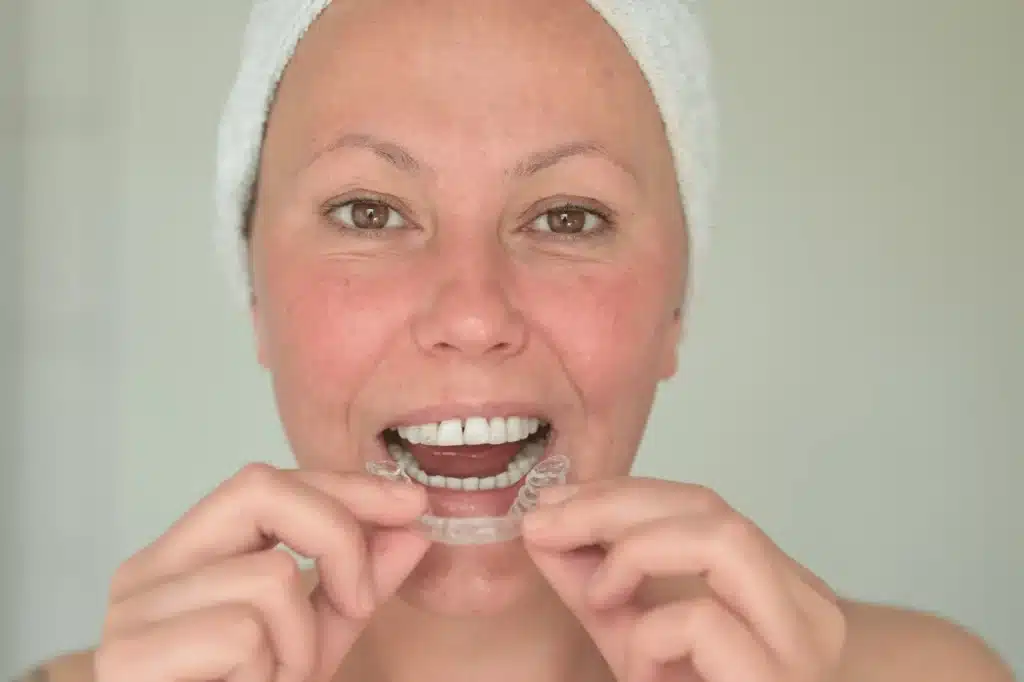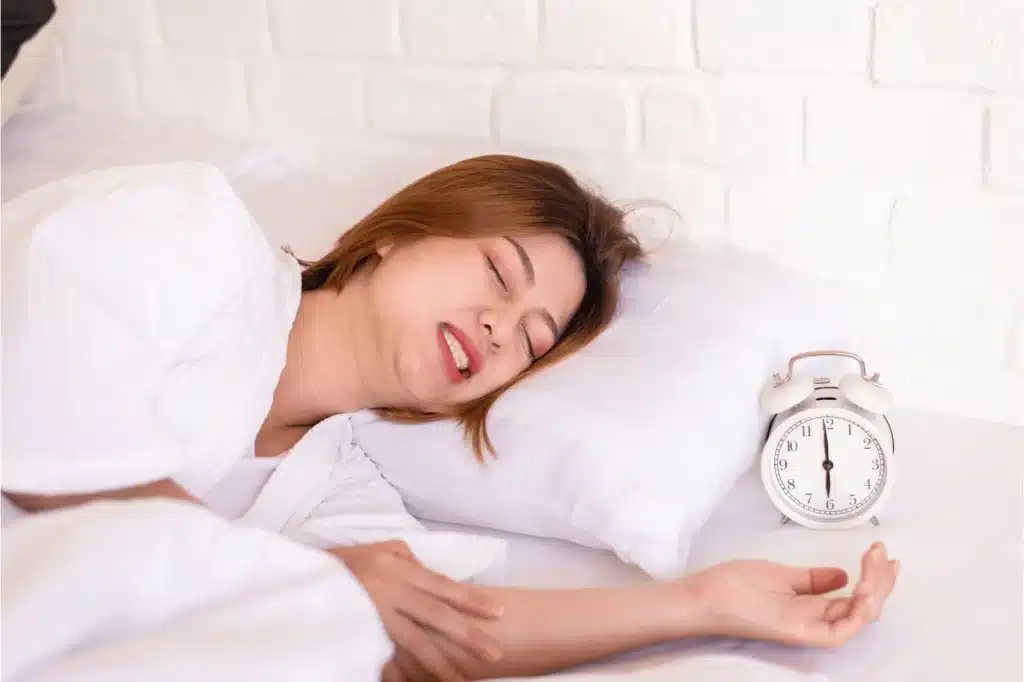Teeth grinding damages tooth enamel and increases sensitivity. Read to know tips to prevent nighttime teeth grinding.
Effects of Teeth Grinding
Teeth grinding, also known as bruxism, might seem harmless, but it can lead to significant complications. Here are some potential issues associated with persistent bruxism:
Misshapen Teeth: Grinding can flatten, chip, or fracture your teeth, affecting your smile and tooth stability.
Worn Tooth Enamel: Constant grinding removes vital tooth enamel, exposing teeth to risks like cavities.
Increased Sensitivity or Pain: Worn enamel makes teeth more sensitive to hot or cold temperatures, causing discomfort and sharp pains.

Tired Jaw Muscles: Frequent clenching leads to tired jaw muscles, resulting in daily fatigue.
Pain in Other Areas: Bruxism can cause discomfort in the neck, face, or jaw area, mimicking an earache.
Headaches: Persistent tension from teeth grinding can trigger headaches, starting from the temples and spreading.
Cheek Damage: Grinding may involve the inside of your cheeks, causing pain and potential bleeding.
Disruption of Sleep: Intense bruxism can disturb sleep, leading to tiredness, restless nights, and frequent waking.
Tips to Prevent Nighttime Teeth Grinding
Here are the tips to prevent nighttime teeth grinding and maintain a healthy smile.
Use a Nighttime Mouth Guard to Protect Your Teeth
Grinding your teeth during sleep can damage enamel and lead to cavities. A custom-fitted mouth guard is best to prevent nighttime teeth grinding. Your dentist offers better comfort and protection than store-bought alternatives, helping prevent nighttime teeth grinding and clenching.

Exercise Regularly to Relieve Stress
Regular exercise in your weekly routine can help alleviate stress and anxiety and prevent nighttime teeth grinding (bruxism). Taking time for physical activity provides a healthy outlet for stress, potentially reducing the tendency to grind your teeth.
Relax Before Bed to Ease Jaw Tension
Ease the tension in your jaw before bedtime by trying these relaxation techniques. These tips help prevent nighttime teeth grinding.
- Take a warm bath to relax your jaw muscles.
- Apply a heating pad or warm, wet towel to your jaw.
- Enjoy herbal, caffeine-free tea to soothe and warm your mouth.
Relieve Jaw Tension with a Massage
If you notice your jaw tensing up during stressful moments, take a moment to relax your face and massage your jaw muscles. Gently rubbing them will help release the accumulated tension from the day and help prevent nighttime teeth grinding.
Increase Awareness of Teeth Grinding
You might be grinding your teeth without realizing it. Practice mindfulness throughout the day to help relax and alleviate anxiety. Pay attention to specific situations or times when teeth grinding intensifies. When you notice it happening, stop by lowering your jaw, allowing it to hang for a moment. Gently move it, then aim to maintain a more relaxed jaw position.
Avoid Chewing Non-Food Items
If you constantly chew gum, crunch ice, or chew on pen caps, it’s time to break these habits. Repetitive motions like these can lead to a clenched jaw, so it’s best to avoid them to prevent nighttime teeth grinding.
Avoid Chewy Foods
Skip foods like steak, popcorn, and taffy when dealing with teeth grinding. These require a lot of chewing and can contribute to jaw wear and tear.
Conclusion
Custom mouthguards are best to prevent nighttime teeth grinding. You can massage and relax your jaws before bedtime to avoid teeth clenching. Consult your dentist for the best options to avoid teeth clenching and prevent your teeth from damage.


